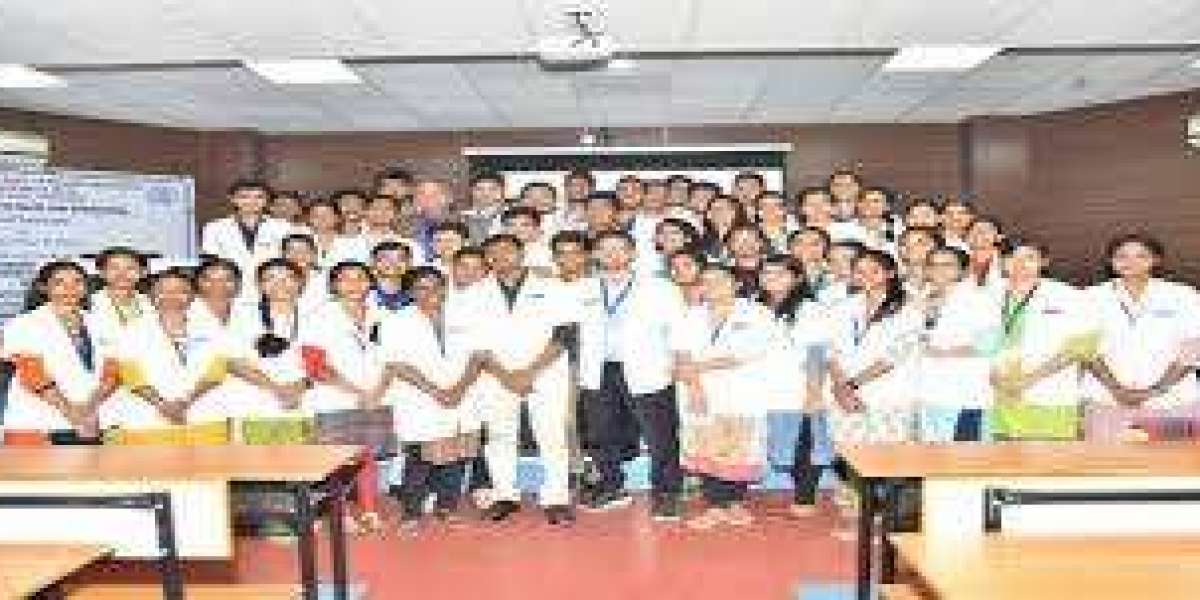Introduction
In recent years, Nepal has become a preferred destination for Indian students pursuing a career in medicine. With cultural similarities, affordable tuition, and MCI/NMC-approved colleges, the MBBS program in Nepal is a viable and attractive option for many. This blog post provides a comprehensive overview of MBBS admission in Nepal for Indian students, including eligibility criteria, fees, top colleges, application process, and more.
Enquiry Now: 9355910750
Why Study MBBS in Nepal?
Studying MBBS in Nepal offers Indian students several advantages:
- Geographic Proximity: Nepal shares a border with India, making travel convenient.
- Cultural and Language Similarity: Hindi and English are widely spoken, easing communication.
- Affordable Education: MBBS in Nepal is more cost-effective compared to private medical colleges in India.
- Quality Education: Nepalese medical universities follow a curriculum similar to Indian standards.
- Recognized Colleges: Most universities are recognized by the National Medical Commission (NMC) and World Health Organization (WHO).
- No Visa Requirement: Indian students don’t need a student visa to study in Nepal.
- High FMGE Passing Rate: Graduates from Nepalese medical colleges perform well in the Foreign Medical Graduate Examination (FMGE) in India.
Eligibility Criteria for Indian Students
To be eligible for MBBS admission in Nepal, Indian students must meet the following criteria:
Academic Qualifications:
- Must have passed 10+2 (Higher Secondary) with Physics, Chemistry, and Biology.
- Minimum aggregate of 50% marks in PCB subjects.
- Must have passed English as a subject.
Age Limit:
- Minimum age: 17 years by December 31 of the admission year.
NEET Requirement:
- As per the NMC guidelines, Indian students must qualify the NEET-UG exam in the admission year.
Duration of MBBS in Nepal
- The MBBS course in Nepal spans 5.5 years.
- 4.5 years of academic education.
- 1 year of compulsory rotating internship.
The structure is similar to the MBBS curriculum in India and follows the guidelines set by the Nepal Medical Council.
Top Medical Colleges in Nepal (Recognized by NMC)
Here's a list of some of the best medical colleges in Nepal that Indian students frequently opt for:
1. Kathmandu Medical College (KMC), Kathmandu
- Affiliated with Kathmandu University.
- Modern infrastructure and hospital facilities.
- NMC and WHO recognized.
2. Manipal College of Medical Sciences (MCOMS), Pokhara
- Affiliated with Kathmandu University.
- Backed by the reputed Manipal Group.
- High number of Indian students.
3. College of Medical Sciences (CMS), Bharatpur
- Affiliated with Kathmandu University.
- One of the oldest private medical colleges in Nepal.
4. B.P. Koirala Institute of Health Sciences (BPKIHS), Dharan
- An autonomous university and one of the most reputed in Nepal.
- High-level research and practical exposure.
- Strong Indian student base.
5. Nobel Medical College, Biratnagar
- Affiliated with Kathmandu University.
- Affordable fee structure.
- Well-equipped hospital for clinical practice.
6. Devdaha Medical College, Rupandehi
- Approved by NMC and affiliated with Kathmandu University.
- Known for good faculty and facilities.
MBBS Fees Structure in Nepal (2025-26)
Fees for MBBS programs in Nepal are regulated by the Nepal Medical Council and are comparatively more affordable than Indian private colleges. The fees range from:
- INR 45 Lakhs to INR 65 Lakhs for the complete course.
Breakdown:
College Name | Total Fees (Approx. INR) | Payment Mode |
Kathmandu Medical College | ₹55–60 Lakhs | In Installments |
Manipal College of Medical Sciences | ₹60–65 Lakhs | In Installments |
College of Medical Sciences, Bharatpur | ₹50–55 Lakhs | In Installments |
BPKIHS, Dharan | ₹55–60 Lakhs | Semester-wise |
Nobel Medical College | ₹48–52 Lakhs | In Installments |
Note: Hostel, food, books, and personal expenses are additional and may cost around ₹10,000–₹15,000/month.
MBBS Admission Process in Nepal
The admission process for Indian students is fairly straightforward and is typically conducted through entrance exams and direct applications depending on the college.
Step-by-Step Admission Process:
- Qualify NEET-UG:
- NEET qualification is mandatory for Indian students to secure admission abroad, including Nepal.
- Select a Recognized College:
- Choose from NMC-approved colleges. Consulting an education counselor may help streamline the process.
- Apply Online or Offline:
- Fill out the application form for the respective university or through an authorized admission partner.
- Submit Required Documents:
- NEET Scorecard
- Class 10 and 12 Mark Sheets
- Birth Certificate
- Passport-size Photographs
- Valid Passport/Aadhaar Card
- Medical Certificate
- Appear for Entrance Test (if applicable):
- Some colleges like BPKIHS and KUSMS conduct their own entrance exams for Indian students.
- Receive Offer Letter:
- After evaluating your documents and scores, the college will issue an admission letter.
- Confirm Admission & Pay Fees:
- Pay the initial fee to secure your seat.
- Travel to Nepal & Join the College:
- Make arrangements for accommodation and arrival.
Documents Required for MBBS Admission in Nepal
Ensure the following documents are ready:
- 10th & 12th Marksheets and Certificates
- NEET-UG Scorecard
- Birth Certificate
- Valid Passport or Aadhaar Card
- Passport-sized Photographs
- Migration Certificate
- Character Certificate
- Medical Fitness Certificate
- Admission Letter (from college)
- Payment Receipts
Advantages of Studying MBBS in Nepal for Indian Students
- No Visa Requirement
Indian nationals can enter and stay in Nepal without a visa. - Affordable Fees
Compared to Indian private colleges, Nepal offers quality education at a lower cost. - MCI/NMC Recognition
Degrees from Nepal are valid in India post-FMGE qualification. - FMGE Success Rate
Nepalese universities have higher FMGE passing percentages than some other foreign countries. - Safe Environment
Nepal is known for being a peaceful and friendly nation. - Indian Food & Culture
Students can easily adapt to the lifestyle as Indian food and culture are prevalent.
Challenges & Things to Consider
- Limited Seats: Good colleges have fewer seats and high demand, so apply early.
- Entrance Exams: Some universities conduct their own entrance tests; preparation is required.
- FMGE Requirement: Students must pass FMGE to practice in India after returning.
- Quality Varies: Not all colleges maintain the same standards—research well before applying.
Tips for a Successful Admission
- Start preparing early, ideally while in Class 11 or 12.
- Focus on NEET-UG preparation, as it's the most crucial step.
- Consult only verified educational consultants with experience in Nepal MBBS admissions.
- Visit the college website or campus (if possible) before finalizing.
- Join official student forums or speak to current students to get genuine feedback.
Career Prospects After MBBS in Nepal
After completing MBBS from Nepal, Indian students can:
- Appear for FMGE/NExT in India to practice as a doctor.
- Pursue PG courses in India or abroad (USMLE/PLAB).
- Work as medical officers in government or private hospitals.
- Continue their education or clinical practice in Nepal, depending on opportunities.
Conclusion
For Indian students seeking quality medical education at a reasonable cost, MBBS in Nepal is a smart choice. With cultural familiarity, no visa requirements, and NMC-recognized colleges, the pathway to becoming a doctor becomes more accessible. However, students must research thoroughly, ensure NEET qualification, and apply to reputed institutions for a successful and fulfilling medical career.



